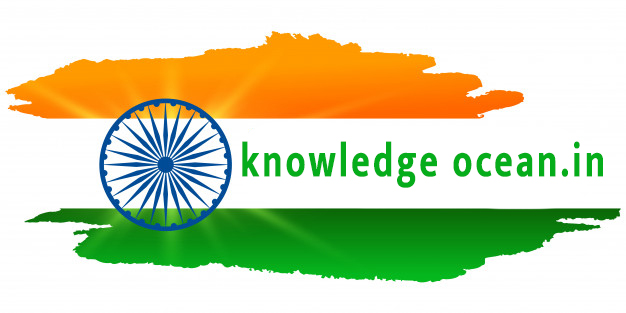Best Car Insurance in India 2023: A Comprehensive Guide
Best Car Insurance in India: Car insurance is an essential requirement for vehicle owners in India. It not only provides financial protection in case of accidents but also ensures compliance with the law. With so many car insurance companies in India, it can be challenging to choose the right one. In this article, we will discuss the best car insurance companies in India based on various factors.
Table of Contents
What is Car Insurance?
Car insurance is a type of insurance that provides financial protection to vehicle owners in case of accidents, theft, or damage to the vehicle. It is mandatory for all vehicle owners in India to have at least third-party liability insurance. This means that in case of an accident, the insurance company will pay for the damages caused to the third party.
Types of Car Insurance
There are three types of car insurance policies available in India:
- Third-Party Liability Insurance – This is the minimum requirement for car insurance in India. It covers damages caused to the third party in case of an accident. It does not cover damages to the insured vehicle.
- Comprehensive Insurance – This type of insurance covers damages caused to the third party as well as the insured vehicle. It also covers theft and damage due to natural calamities such as floods and earthquakes.
- Standalone Own-Damage Cover – This type of insurance covers damages caused to the insured vehicle due to accidents, theft, or natural calamities. It does not cover damages caused to the third party.
Factors to Consider While Choosing Car Insurance
When choosing car insurance, it is essential to consider the following factors:
- Coverage – The coverage offered by the insurance policy should be comprehensive and should cover damages caused to the third party as well as the insured vehicle.
- Add-On Covers – Add-on covers such as zero depreciation, engine protector, and roadside assistance can provide additional protection to the insured vehicle.
- Claim Settlement Ratio – The claim settlement ratio of the insurance company should be high. This means that the insurance company settles claims quickly and efficiently.
- Cashless Claim Settlement Process – The insurance company should have a cashless claim settlement process. This means that the insured can get their claims settled without paying any cash upfront.
- Network of Garages – The insurance company should have a network of garages across India. This makes it easy for the insured to get their vehicle repaired in case of an accident.
best car insurance in india
Based on the above factors, we have compiled a list of the top car insurance companies in India:
- ICICI Lombard – ICICI Lombard is one of the leading car insurance companies in India. It offers comprehensive coverage for all types of vehicles, including cars, two-wheelers, and commercial vehicles. ICICI Lombard has a network of more than 3,500 garages across India, making it easy for customers to get their vehicles repaired. The claim settlement ratio of ICICI Lombard is 98.6%, which is one of the highest in the industry.
- Bajaj Allianz – Bajaj Allianz is another popular car insurance company in India. It offers a range of car insurance policies, including third-party liability, comprehensive coverage, and standalone own-damage cover. Bajaj Allianz has a cashless claim settlement process, which makes it convenient for customers to get their claims settled. The claim settlement ratio of Bajaj Allianz is 94.5%.
- HDFC ERGO – HDFC ERGO is a joint venture between HDFC Ltd. and ERGO International AG. It offers a range of car insurance policies, including comprehensive coverage, third-party liability, and standalone own-damage cover. HDFC ERGO has a network of more than 6,800 garages across India, making it easy for customers to get their vehicles repaired. The claim settlement ratio of HDFC ERGO is 89.48%.
- New India Assurance – New India Assurance offers a range of car insurance policies, including third-party liability, comprehensive coverage, and standalone own-damage cover. It also offers add-on covers such as zero depreciation, an engine protector, and roadside assistance. New India Assurance has a high claim settlement ratio of 95.27%, which makes it a reliable choice for customers.
- Tata AIG – Tata AIG offers a range of car insurance policies, including third-party liability, comprehensive coverage, and standalone own-damage cover. It also offers add-on covers such as depreciation reimbursement, engine protector, and return to the invoice. Tata AIG has a cashless claim settlement process, which makes it convenient for customers to get their claims settled. The claim settlement ratio of Tata AIG is 91.80%.
- Reliance General Insurance – Reliance General Insurance offers a range of car insurance policies, including third-party liability, comprehensive coverage, and standalone own-damage cover. It also offers add-on covers such as zero depreciation, an engine protector, and a personal accident cover. Reliance General Insurance has a network of more than 4,000 garages across India, making it easy for customers to get their vehicles repaired. The claim settlement ratio of Reliance General Insurance is 88.14%.
- United India Insurance – United India Insurance is a government-owned general insurance company that offers a range of car insurance policies, including third-party liability, comprehensive coverage, and standalone own-damage cover. It also offers add-on covers such as zero depreciation, an engine protector, and a personal accident cover. United India Insurance has a high claim settlement ratio of 91.72%, which makes it a reliable choice for customers.
Conclusion
In conclusion, choosing the right car insurance company is crucial for vehicle owners in India. The above-mentioned companies are some of the best car insurance companies in India based on various factors such as coverage, add-on covers, cashless claim settlement process, and network of garages. It is recommended that customers compare car insurance policies and choose the one that best suits their needs.
Also read:





